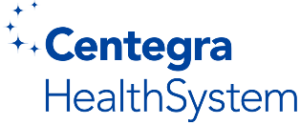

Summary of Work:
As part of Warbird’s broader performance improvement services provided to Centegra Health Systems of Northwestern Illinois, Warbird provided IT technical subject matter expertise to improve performance systemwide. The IT aspects of the engagement were focused on physician billing practices, use of its ambulatory software, the group practice EHR and an assessment of the existing software build in anticipation of a pending affiliation with Northwestern Medicine in Chicago.
Background:
Centegra executed a letter of intent to merge into Northwestern Medicine System; however, Centegra’s challenging financial and operating performance placed jeopardized the ability of the parties to close the deal. Among other performance improvement opportunities that existed, Centegra’s 263-member provider group faced significant technology issues that impacted the financial performance of the group. The technology and information system issues of concern were:
- Insufficient knowledge and ineffective utilization of information system and its capabilities
- Inadequate provider training in efficiently navigating current IT applications
- An overburdened EHR, performing tasks outside of original design
- Lack of adequate support from existing outsourced technology vendors
- No integration of clinical and billing information systems into main hospital system
- Inconsistent IT workflows compared to industry best practices, resulting in lost efficiency opportunities
In addition, physician satisfaction with the ambulatory data system (EHR) and weak revenue cycle performance outcomes within the practice, led to broad provider frustration, inefficient utilization of the systems, and significant lost revenue.
Areas of Focus:
Information System Assessment & Workflow Reorganization:
- NextGen EHR System Optimization. Warbird was tasked with several high-level objectives to optimize the current NextGen EHR system to maximize efficiency, improve system speed, and increase revenues. Warbird’s IT subject matter experts immediately identified 59 open issues with NextGen, 29 changes to the system, 89 different tasks to optimize NextGen, and 4 initiatives focused on the Physicians Group Practice (workflow, training, etc.).
- Revenue Cycle System and IT Workflow Reorganization. After the initial assessment, work started within the revenue cycle department to understand its existing workflows. A senior revenue cycle executive, under Warbird’s guidance, identified current practices that did not adhere to best practices and created an implementation plan to address needed improvements. Working with a small budget and a compressed timeline, the revenue cycle executive teamed with Warbird’s IT technical team to implement the necessary changes to the NextGen system. Tasks were prioritized, focusing on those tasks which would deliver the greatest financial improvement in the shortest amount of time.
Information System Change Implementation & Training:
- EHR NextGen Upgrades and Training. Given limited resources during this time frame and limited skillset commitment from its existing outsourced primary IT vendor, Warbird established an oversight committee for every area that would be affected by the planned and implemented changes. This included business and clinical requirements, documentation of current and future workflows, training and training materials for revenue cycle and clinical staff, and testing scenarios for the NextGen EHR system. Warbird’s information system subject matter experts, with approval of Centegra’s CIO’s, made changes and modifications to the EHR system directly, and executed the necessary upgrades to NextGen.
- Identification and Execution of Additional Issues. As Warbird executed initiatives in the information system implementation plan, additional opportunities were identified that would improve other areas of the organization’s use of the system, beyond the original scope of Warbird’s engagement. For example, such items as Rx Refills, the patient portal, point of service collections in the revenue cycle, and third-party contract management were all identified as opportunities for enhancing Centegra’s financial and operating performance. While some of these tasks were beyond the scope of Warbird’s engagement, the Warbird information system professionals integrated many of these items opportunities within the overall implementation plan and further increased the performance improvements that Centegra realized.
Conclusion:
Alongside Warbird’s broader performance improvement services, Warbird’s information system subject matter experts directly assisted Centegra’s CIO to assess, prioritize, and implement core and necessary information system changes. These system changes generated improved operating efficiencies and substantial financial improvements. Warbird’s practitioner-consultants accelerated the pace and speed of the improvement process, allowing Centegra to quickly move from assessment to creation and rapid execution of an implementation plan. As a result, Centegra experienced measurable improvements in physician satisfaction, increased and correct provider utilization of the information system, ultimately resulting in higher net revenues for the organization. These information system improvements were instrumental in turning around the Physician Group Practice, the largest overall contributor to Centegra’s effective financial turnaround.